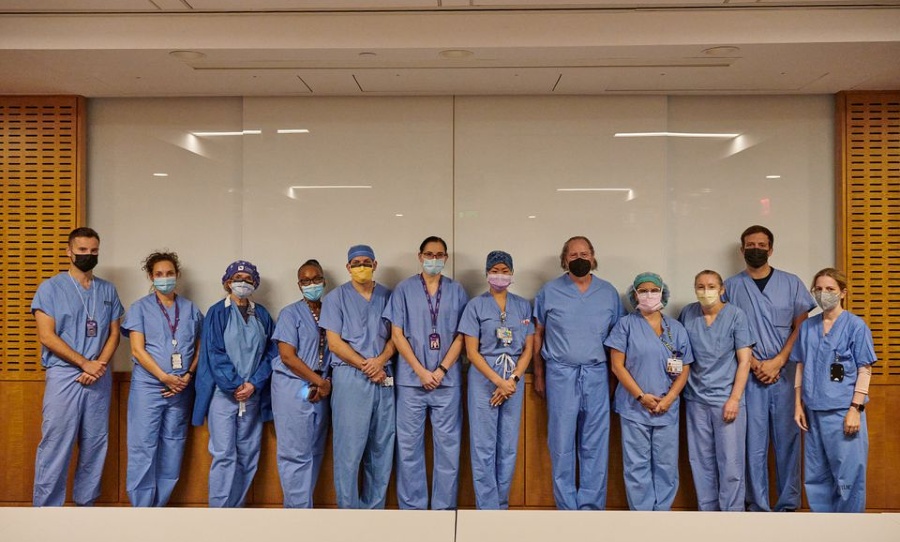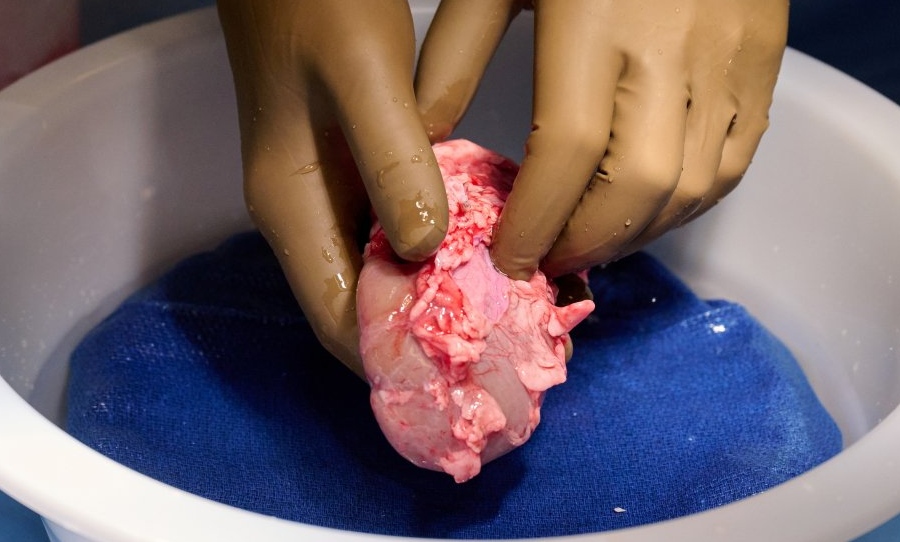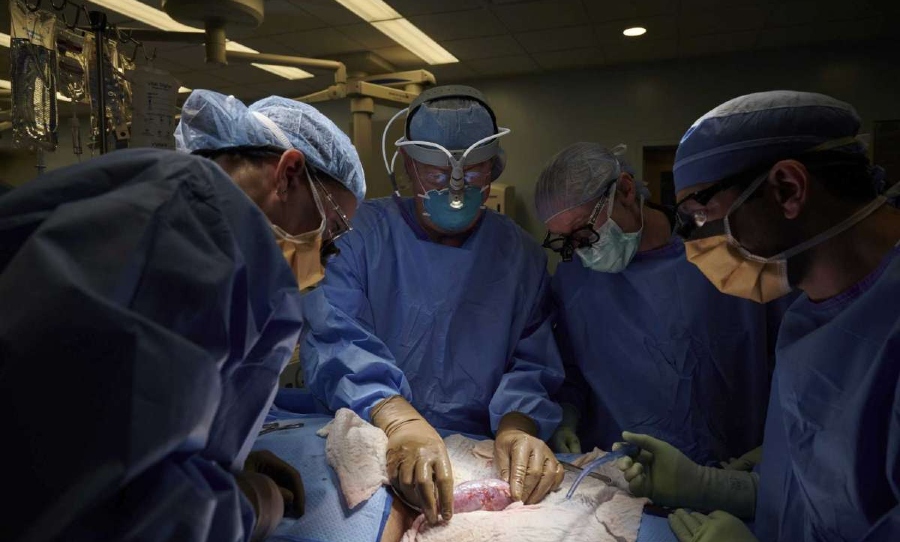In a world first, US surgeons have successfully transplanted a kidney from a genetically engineered pig into a human patient.
A team at NYU Langone Health in New York performed the operation on a woman who was recently declared braindead. With the permission of her family, the team conducted the surgery before she was taken off life support.
As no immediate rejection occurred, the success of this transplant may play an integral role in easing the demand for human organ donors.

For three days, the new kidney was attached to the woman’s blood vessels and remained outside her body. This made it more accessible to doctors during this testing period.
The recipient’s body showed signs of kidney dysfunction that returned to normal after the transplant.
According to lead surgeon, Dr Robert Montgomery, the purpose of this study was “to provide the first evidence that what appears to be promising results from non-human primates will translate into a good outcome in a human”.
Dr Montgomery told the Guardian that the kidney functioned normally once transplanted and could successfully filter waste and produce urine.
The current average wait time for a kidney transplant in developed nations is 3-5 years or longer. This success of this procedure could lead to dramatically reducing such a wait time.
As we live in a world where patients must rely on another human’s death for a transplant, we desperately need a new sustainable and renewable source of organs.
https://twitter.com/rordonezCA/status/1450854210250031104
Xenotransplantation is the transplantation, implantation or infusion into a human recipient from a nonhuman animal source. This procedure is most commonly unsuccessful due to the rejection of the organs by the human host.
The team at NYU chose to use a genetically engineered pig, that had been altered to remove a sugar molecule, or glycan, called alpha-gal, that is known to play a major part in the rejection of an organ.
These pigs, referred to as GalSafe, were approved for engineering by the FDA in December 2020 to be used for human food consumption or human therapeutics.

Pigs have organs similar to humans and were a preferable choice of animal to work with for the team at NYU. They are commonly raised for meat production and therefore less likely to raise ethical concerns with the public compared to organs taken from other primates.
According to a 2019 study by the Australian and New Zealand Society of Nephrology, patient survival rates after a kidney transplant from a deceased donor are 91 percent at 5 years and 46 percent at 20 years. For transplants from live donors, survival rates are 96 percent for 5 years and 67 percent at 20 years.
The team chose to transplant a kidney due to the high success rate in transplants but are hopeful to see the same success with other organs from non-human primates.
“If it works with a kidney, it will work with a heart. That will transform the issue,” said Sir Terence English, the surgeon who performed the UK’s first successful heart transplant.
Dr. Montgomery is hoping that the NYU kidney transplant paves the way for trials over the next year or two for patients with end-stage kidney failure. He says this may serve as a short-term solution for critically ill patients until a human kidney becomes available or possibly, as a permanent transplant.



